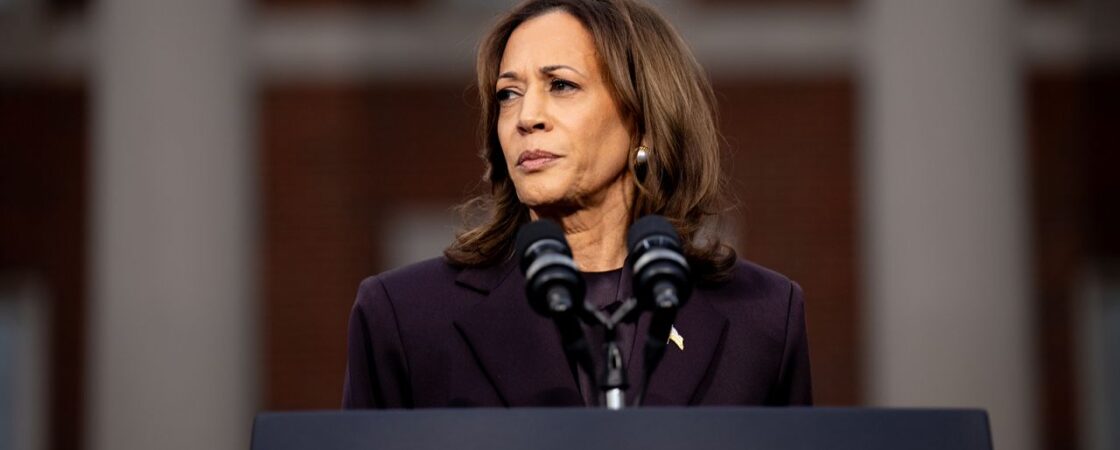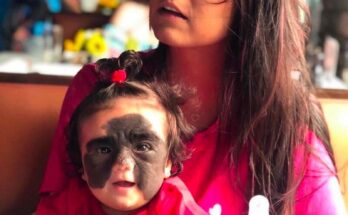Top aides and people close to Kamala Harris have divided over whether she should head home to run for California governor in 2026 — and it all comes down to whether they believe she could win the Democratic nomination for president in an expected competitive primary in 2028.
Some believe a repeat run, after quickly improving her reputation and raising more than $1 billion over her surprise 100-day race, should be hers for the taking. Others worry that in a longer campaign, against some of the other major Democratic contenders who already sat out 2024 in deference first to Joe Biden and then to her, Harris might fizzle out and follow her loss to Donald Trump with the humiliation of being rejected by her own party.
The governor’s race, meanwhile, looks like a lay-up: Harris was elected statewide three times and served 10 years combined as state attorney general and US senator, and when asked by CNN, several major candidates made clear either directly or through aides that they would likely step aside if she got in.
In CNN’s conversation with over a dozen current and former Harris advisers and other top California Democratic players, the only consensus around the vice president is that she likely can’t do both, since that would essentially require launching a presidential campaign soon after being sworn in as governor.
Getting into the governor’s race, top Harris advisers believe, would require making her intentions clear at the latest by the summer of 2025. That means Harris will need to decide very soon after Trump’s inauguration if she will quickly give up on her dream of being president – which she feels got short shrift from the circumstances of this year – and instead go for a job that, while one of the most powerful in American politics, would clearly be a fallback.
Harris would have to think of running for governor as “more of a capstone than a stepping stone,” said one person who has advised her in the past. “If you’re thinking of running for president in 2028, the worst thing you can do is run for governor in 2026.”
Another person close to Harris told CNN that the gamble of skipping the governor’s race is worth the potential payoff.
“Running for governor would be a step down, and it would interfere with her ability to run for president again,” the person said. “I don’t know if she’s going to run for president again, but a shot at running for president again is worth giving up running for governor.”
‘Not going quietly into the night’
Several people who have spoken with the vice president directly told CNN that she remains undecided herself, unsure how to channel feelings she has, for now, worked into stock lines like “you haven’t seen the last of me,” and “I’m not going quietly into the night” repeated to supporters who ask her what’s next.
More than one person has noticed she has not shut down the conversation when the topic of running for governor has come up.
In the meantime, Harris has kept a noticeably low profile, appearing at just a handful of public events since her concession speech, while her thank-you phone calls with donors and other supporters have often gone long, with tears on both ends, according to people familiar with the calls. She did host many staff from her office and from her campaign for a holiday party at the Naval Observatory this past Wednesday, and a smaller group of close friends and supporters for a black tie dinner there on Friday night.
On Tuesday, Harris will deliver a speech in the Washington, DC, suburbs to high school and college students, as well as recent graduates and apprentices. A White House official in the announcement said it will be “a continuation” of her “broader, future-focused leadership,” but those remarks will be a more generalized message about their engagement than any tip to her own plans, according to several people who’ve seen drafts.
Harris and those who are most committed to her do not want Trump to have written her end for her and for her last major official act ever to be presiding over the certification of his Electoral College win on the four-year anniversary of his supporters rioting at the US Capitol trying to stop Biden’s and her own certification.
Some people note that there’s also option C: being done with politics, inking a book deal and running some kind of organization that lets her stay involved without ever hitting the trail again.
But when questions swirled in the weeks after the election about Harris’ presidential campaign possibly being left with debt, one break-glass option those closest to her definitively ruled out was selling the list of emails and contacts compiled by the campaign — currently by far the most valuable list in Democratic politics. She would need that if and when she decides what campaign is next, they said. And it’s part of why those same people are frustrated that the campaign continues to send out fundraising emails, worrying that this is leading donors and supporters whom she will eventually need to unsubscribe or sour on her.
Historical parallels and defying history
The only person to win the White House on a second try as the party nominee was Richard Nixon, another California senator turned vice president who first tried retrenching with a gubernatorial run (and lost) — a historical parallel that has been on the minds of people at the top levels of California politics.
Then again, Trump is the only other president to return to office after a loss since Grover Cleveland over 100 years ago.
For another presidential run, Harris would have to be hoping for the kind of Trump buyer’s remorse that right now only exists in Democratic fantasies — and, should it come, that it doesn’t curdle into resentment toward her for losing the campaign that made his comeback possible. And she would have to convince a wide array of party leaders who temporarily shelved their skepticism about her after Biden dropped out, but are now privately cold to the idea of another run.
Being governor of California, of course, is a job with a lot of its own power and prominence, running the world’s fifth largest economy and America’s longstanding laboratory for progressive capitalist politics. It was enough to lure Arnold Schwarzenegger out of the movies and to turn Ronald Reagan and Jerry Brown into presidential candidates.
Several advisers noted that being governor could give Harris time to build up more of a record of her own in the hopes of running not in 2028, but in 2032 or 2036 — with who knows what could happen in the country or politics in between. They also acknowledge that it would be a decadelong step back.
There’s also the Gavin Newsom factor. The two have long circled each other in California politics, and in 2016, she preempted Newsom, then the state’s lieutenant governor, in jumping into an open Senate race, making the decision for which of the rising stars would go for which first big statewide opening that they’d both been waiting for. Newsom, in turn, ran for governor in 2018, and has since defeated a recall effort and won reelection.
To run for governor now would be to go for a job Newsom is done with – and likely while watching him make an expected run for president of his own.
No expected deference in 2028
That afternoon and evening in July after Biden dropped out, while Harris was making calls from the Naval Observatory to line up support, several other potential candidates were checking in with each other: Were they really all going to fall in line? Was there any room for launching a campaign, if only for the sake of a fight for the nomination, if not for the longshot hope of edging her out? They waited out their endorsements for a few hours, some until the next morning, as they decided they couldn’t credibly challenge Harris, according to people familiar with some of the conversations.
They would not have the same deference if Harris runs again in 2028, people working with several of the prospective candidates note.
Several Harris advisers worry that eager competition might not be her only problem.
Even when putting much of the blame for her losing on Biden and economic factors out of her control, they look at her poorer-than-expected showing among younger and Black voters and see cause for major concern. Others say that her empowering the small group of senior aides who have been criticized internally and externally for how they guided her through the fall demonstrates poor decision making that would create even more problems over a presidential campaign that lasts a couple of years rather than a couple of months.
But several advisers argued that all the gripes and insider infighting only matter so much when compared to the support and connections Harris quickly built up around the country.
“Usually Democrats banish their defeated candidates, but she actually would have a strong shot at a second act because of how well she ran compared to how her skeptics rated her prior to July,” said a former senior adviser. “She finished the race much more popular than she started it.”
A possible ‘field clearing effect’ in California
Harris would definitely get more deference in a gubernatorial campaign, though some involved with the race are already privately pointing to how she only barely won her first attorney general race in 2010 and more recent bad in-state polls for her as signs that she might be weaker than assumed. Some connected to other gubernatorial candidates are already seeding the words “consolation prize” in trying to talk down her possible entry, arguing that’s how California voters would see it.
People close to Harris who want her to run for governor say that if she gets there, that is exactly why she would need to articulate a clear rationale for getting into the race that is both connected to the proposals of her presidential campaign and not just being anti-Trump.
Outgoing Rep. Katie Porter, who lost a run for Senate this year and has been sending around a poll showing her at the front of the gubernatorial field, predicted at a panel at University of California, Irvine at the beginning of December that Harris’ entry would have a “near field-clearing effect,” and California Lt. Gov. Eleni Kounalakis, who has already launched her campaign for governor, intimated as much in an interview with CNN.
“I’m a longtime friend and supporter of the vice president. If she decided to run for governor, I’m sure we would have a conversation first,” Kounalakis said.
California political insiders have already started speculating about a ripple effect from a Harris entry, wondering which candidate might shift to which other statewide race to make way for her.
A person close to Antonio Villaraigosa pointed to the former Los Angeles mayor’s strength in early polls and fundraising, and said that while he has tremendous respect for Harris and her record, his focus is on the race and not about potential future candidates.
The campaign for former California assembly speaker Toni Atkins did not return a request for comment.
Then there’s Rick Caruso – the billionaire developer who became a Democrat to make a losing run for Los Angeles mayor in 2022, and could take advantage of California’s “top two” system, rather than party primaries, to self-fund a yearlong run against Harris from the center.
But there also is a readiness among some California Democrats for a homecoming.
“Kamala Harris has deep respect and affection in California and substantive statewide experience to fix the problems in California with high rents and housing costs, homelessness, and crime,” said California Rep. Ro Khanna, a sometimes Harris skeptic who is looking at running for president himself in 2028. “She would be formidable, if she chooses to run.”



